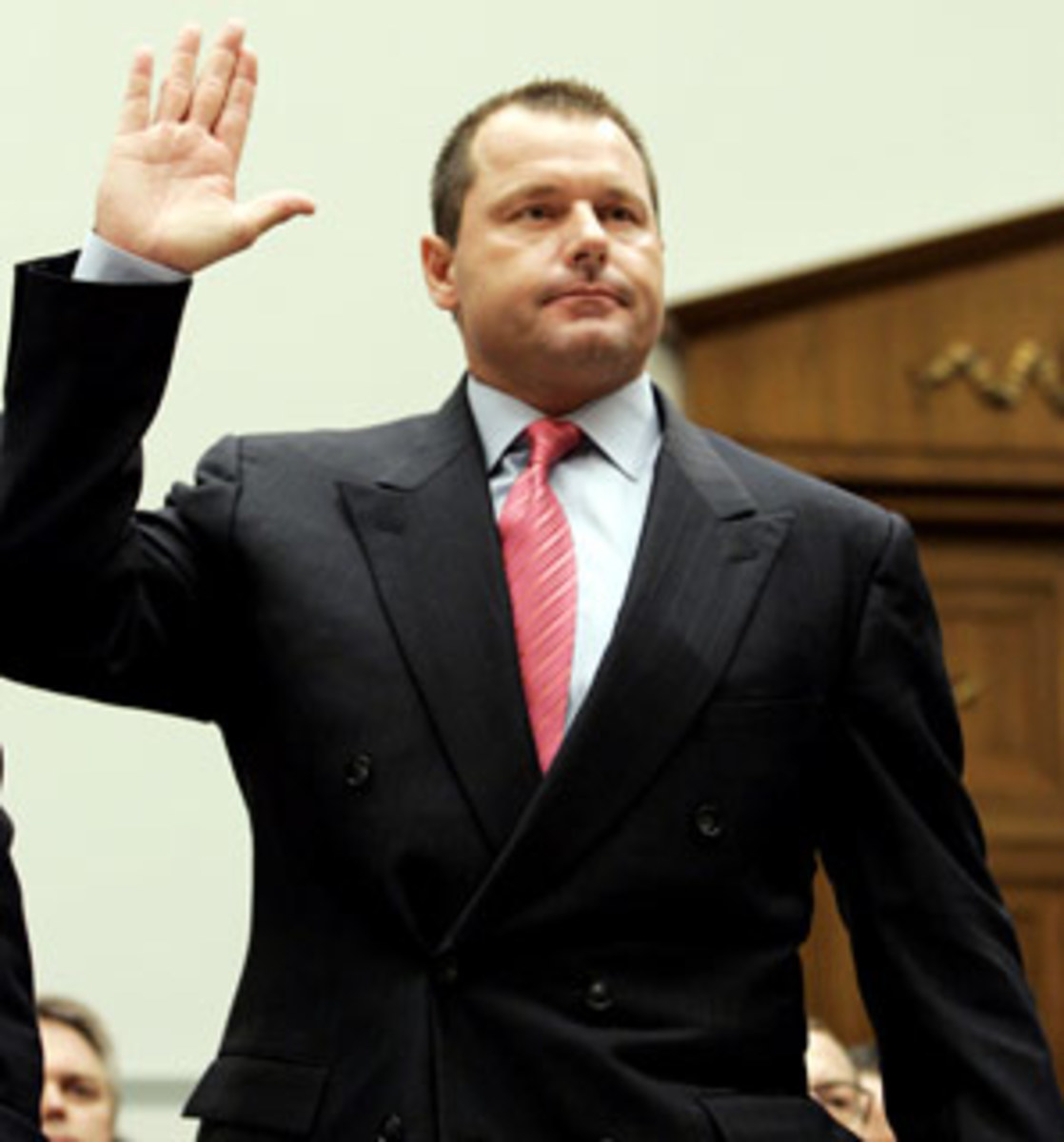
Roger Clemens' legacy about vanity, and that was his downfall
"The thing about Americans is we have no heroes of substance, only athletes and movie stars."-- Jim O'Brien, former Baltimore Colts kicker
Roger Clemens has been indicted and all I keep thinking about is the vanity.
Oh, not of the indictment. If there's anything vain about someone possibly going to prison, I've yet to see it. No, the vanity is what, one must think, brought Clemens to this dreaded point in his life; the belief that throwing a baseball -- a random act somehow deemed valuable by our society -- is important and powerful and worthy of great riches and praise and status.
For his entire life, from a boyhood split between Ohio and Texas to San Jacinto College to the University of Texas to the minor and major leagues to retirement to un-retirement to retirement to un-retirement to retirement to now, Clemens has viewed himself as a baseball player, and only a baseball player.
He has four sons, and all of them -- Koby, Kory, Kacy, and Kody -- were proudly and purposefully named with a K, the baseball symbol for strikeout. Let's think about that for a second: The birth of a child. An amazing, blessed moment. A blank slate of a little person, staring up at you, warm and new, all full of wonder and splendor ... and you name the child after a strikeout? Four separate times? Really?
But that's who Roger Clemens is. The kind of guy who names his children after a strikeout. The kind of guy who, for holidays, presents teammates with signed photographs of himself. The kind of guy with vanity baseball-themed license plates (SOX-21 back during his Boston years, CY-MVP more recently) and the kind of guy who, sans humor or irony, refers to himself not in the first person or third person, but by a nickname. As Pat Jordan once wrote in a brilliant piece for The New York Times Magazine: "Clemens assumes everyone's pleasure revolves around him. He says of the Yankee catcher Jorge Posada, 'I have so much respect for him that I'd love for him to catch my 300th win.' He says he hates to miss a start because that might deprive his fans, especially young boys, from the pleasure of seeing "the Rocket Man punch out 20." The Rocket Man is his nickname. He sometimes autographs his book "Rocket Man" or "Roger 'The Rocket' Clemens" and then adds a list of his awards: "Cy Young, '86, '87, '91, '97, '98."
This is not to mock Clemens. Just as I was surely made to be a schlubby, poorly dressed writer with two left feet and a vanishing hairline, Clemens is who he is (or was who he was) -- a fastball-slinging Terminator, sent here from the future to strike fear in opposing batters and bring thousands of fans to their feet.
Truth is, when it comes to doing anything to triumph in a sporting arena, history has shown vanity to be a more powerful tool than speed, strength, balance and even timing. Look at the legends -- Ali, Namath, Reggie, Tiger, Favre -- and (generally speaking) the greater the vanity, the greater the performer. You will win. You have to win. You always win. You can't be stopped. Nobody is better. You're the man.
Yet here's the catch: What vanity giveth, vanity taketh away. Ali's career ended with a pummeling from Trevor Berbick. Namath was remembered for trying to kiss Suzy Kolber. Mr. October wanders the Yankee Stadium batting cages begging for someone to ask about Mr. October, Tiger and Favre, well, what more needs to be said? Clemens could have never turned to performance-enhancers ... could have faded off into mid-30s mediocrity, and we would be praising him as one of the great righthanders of all time. But as was the case with Barry Bonds, the Rocket's brother in 2000s baseball buffoonery, vanity's sweet siren call was too powerful. "One of the greatest" was never enough. Clemens wanted more. Needed more. Craved more. So, according to Brian McNamee and Andy Pettitte and every shred of logical deduction, he looked for an illegal boost.
Then lied about it.





